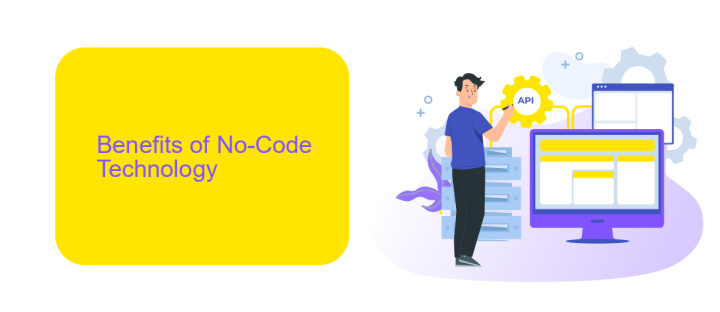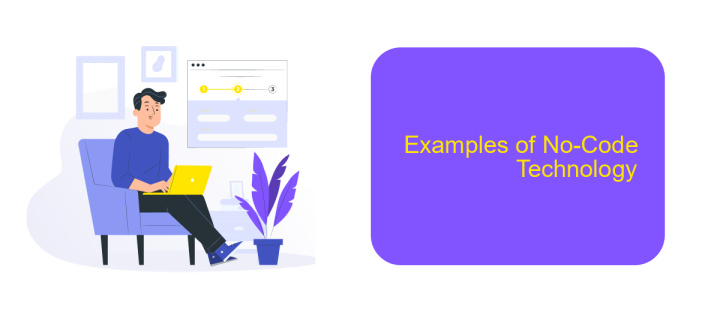What is No-Code Technology
No-code technology is revolutionizing the way we build and deploy software applications. By allowing users to create complex systems without writing a single line of code, it democratizes software development, making it accessible to non-programmers. This innovation not only accelerates development timelines but also empowers businesses to innovate and adapt with unprecedented speed and efficiency.
What is No-Code Technology?
No-code technology refers to platforms and tools that allow users to create applications, websites, and other digital solutions without writing any code. This approach democratizes software development, enabling individuals with little to no programming experience to build functional and sophisticated systems. By leveraging intuitive drag-and-drop interfaces and pre-built modules, users can streamline their workflow and focus on creativity and problem-solving.
- Accessibility: Allows non-developers to create software solutions.
- Speed: Rapid development and deployment of applications.
- Cost-effective: Reduces the need for specialized development skills.
- Flexibility: Easily adaptable to changing business needs.
One of the significant advantages of no-code platforms is their ability to integrate with various services. For instance, ApiX-Drive offers seamless integration capabilities, allowing users to connect different applications and automate workflows without any coding. This enhances productivity and ensures that all systems work harmoniously together. No-code technology is transforming the landscape of software development, making it more inclusive and efficient.
Benefits of No-Code Technology

No-code technology offers numerous benefits, making it an attractive option for both businesses and individual users. One of the primary advantages is its ability to significantly reduce development time. Traditional coding can be time-consuming and requires specialized skills, whereas no-code platforms allow users to create applications quickly through a visual interface. This democratizes the development process, enabling non-technical users to bring their ideas to life without needing to learn complex programming languages.
Another major benefit is cost efficiency. By eliminating the need for a dedicated development team, businesses can save on labor costs and allocate resources more effectively. Additionally, no-code platforms often come with built-in integrations, simplifying the process of connecting different tools and services. For instance, ApiX-Drive allows seamless integration between various applications, making it easier to automate workflows and enhance productivity. This capability not only streamlines operations but also enables companies to adapt quickly to changing market demands.
Challenges of No-Code Technology

No-code technology has revolutionized the way businesses develop applications, but it is not without its challenges. One of the primary concerns is the limited customization options. While no-code platforms offer a variety of templates and tools, they may not provide the flexibility needed for highly specialized or complex projects.
- Scalability Issues: As businesses grow, their needs become more complex, and no-code solutions may struggle to scale accordingly.
- Security Risks: No-code platforms might not offer the same level of security features as custom-coded solutions, making them potentially vulnerable to cyber threats.
- Integration Limitations: Integrating no-code applications with existing systems can be challenging. Services like ApiX-Drive can help to some extent, but they might not cover all integration needs.
- Vendor Lock-In: Relying heavily on a single no-code platform can create dependency issues, making it difficult to switch providers or platforms in the future.
Despite these challenges, no-code technology continues to grow in popularity due to its ease of use and ability to speed up development processes. Businesses should carefully consider these limitations and plan accordingly to maximize the benefits of no-code solutions.
Examples of No-Code Technology

No-code technology has revolutionized the way individuals and businesses build applications and automate processes without needing to write a single line of code. This approach democratizes software development, making it accessible to non-technical users.
Several platforms exemplify the power and versatility of no-code technology. These tools cater to a wide range of needs, from website building to automating complex workflows.
- Webflow: A platform for designing, building, and launching responsive websites visually.
- Zapier: An automation tool that connects different apps and services to streamline workflows.
- Airtable: A flexible database management tool that combines the simplicity of a spreadsheet with the power of a database.
- ApiX-Drive: A service that helps users set up and manage integrations between various applications effortlessly.
- Bubble: A no-code platform for building web applications with a visual interface.
These examples illustrate the broad applicability of no-code technology, enabling users to create sophisticated solutions without needing extensive technical skills. Whether it's building a website, automating tasks, or managing data, no-code tools empower users to bring their ideas to life quickly and efficiently.
Future of No-Code Technology
The future of no-code technology looks incredibly promising as it continues to democratize software development and empower non-technical users to create complex applications with ease. This shift is expected to lead to a surge in innovation, with more individuals and small businesses able to develop custom solutions tailored to their unique needs. As no-code platforms evolve, they will likely integrate more advanced features such as artificial intelligence and machine learning, further expanding their capabilities and potential applications.
One key area of growth will be in the integration of various services and tools, making it easier for users to connect different systems without writing a single line of code. Services like ApiX-Drive are at the forefront of this movement, offering simple and efficient ways to automate workflows and integrate apps. By providing a user-friendly interface for setting up integrations, ApiX-Drive and similar platforms will play a crucial role in the future landscape of no-code technology, enabling seamless connectivity and enhanced productivity.
FAQ
What is No-Code Technology?
Who can benefit from using no-code platforms?
How does no-code technology impact the speed of development?
Can no-code platforms handle complex integrations and automation?
Is no-code technology secure for business applications?
Do you want to achieve your goals in business, career and life faster and better? Do it with ApiX-Drive – a tool that will remove a significant part of the routine from workflows and free up additional time to achieve your goals. Test the capabilities of Apix-Drive for free – see for yourself the effectiveness of the tool.

